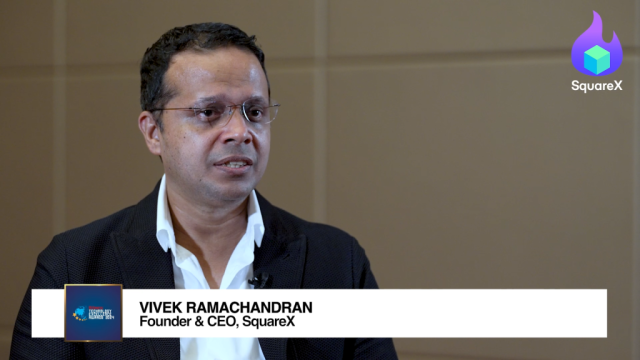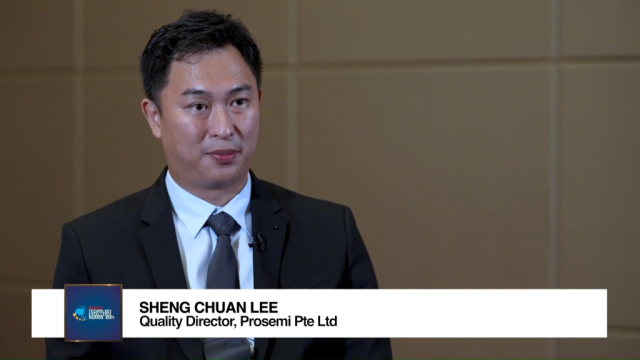
Automakers go electric to avoid phase-out in Singapore's car-lite future
Nissan will soon be launching its battery electric vehicle Nissan LEAF to Singapore.
Against the government’s intensified push for public transport and stiff position on private vehicle ownership, carmakers are shifting gears and rolling out electric vehicles in an attempt to boost dismal sales and stay relevant even as Singapore drives into a car-lite future.
The vehicle sales market in Singapore is expected to hit rock bottom in 2021, according to Fitch Solutions, with new vehicle registrations set to contract at an annual average rate of 25.4% over 2020-2021 as the sector continues its cyclical contraction further aggravated by the hyperexpensive cost of cars.
“Over the next three to five years we expect car sales to contract by 26.9% and 14.4% respectively as the current COE renewal period comes to an end in 2018,” Joshua Cobb, automotive industry analyst at Fitch Solutions told Singapore Business Review.
The dismal forecast which easily deals a blow to carmakers, however, comes as a positive development for the government who has long pushed for a car-lite agenda to reduce strain on local infrastructure and encourage public transport use.
Also read: Singapore has the world's second best public transport system
In February 2018, the move by the Land Transport Authority (LTA) to freeze the number of private cars on its streets came into effect. Although private car numbers were once allowed to increase by 0.25% annually, aspiring carowners now have to lie in wait for the chance to hit the streets although the rate will be reviewed by 2020.
There are a total of 612,256 cars and station wagons in Singapore by end-2017, data from the LTA show, which is less than a 100,000-unit-increase from the 514,685 cars and station wagons on the streets in 2007.
“Singapore has for a long time limited the vehicle fleet size in the country, as there is only a finite amount of space in the country which will always limit the amount of vehicles that that its infrastructure can handle. That said, in recent years the government has tried to prioritise the development of its public transportation infrastructure,” explained Cobb.
Cobb suggests that the personal transportation industry will be further beset by the proliferation of micromobility services or smaller vehicles like scooters or bicycles who are best able to maneuver their in and out of densely populated Singapore and address the last mile transportation issue.
Electrifying cars
That said, automakers will not be booted out of Singapore that easily although their vehicle fuel mix will evolve correspondingly so that electric vehicles will play a much larger role in Singapore’s nationwide fleet, forecasted Cobb.
“As Singapore is developing into a smart city, we are seeing an increased demand for safe, smart and sustainable mobility. We believe this future of mobility is electric,” said Vincent Wijnen, Senior Vice President in Asia and Oceania at Nissan. “That’s why we will soon be introducing the new Nissan LEAF – the world’s best-selling electric vehicle – to Singapore.”
Wijnen suggests that the city’s dedicated Smart Nation push offers a wealth of opportunities for automakers and how to stay ahead of evolving mobility requirements. “We remain committed to playing a leading role in electrification for the long term, so that means more electric vehicle technologies in the pipeline for Singapore and the region, as well as other models under our Nissan Intelligent Mobility vision,” he added.
Automakers are also increasingly investing into ride-sharing services as more urban residents opt for such transport solutions than traditional vehicle ownership enabling them to enjoy the benefit of public transportation without shouldering the heavy cost of owning a car, noted Cobb.
Toyota has made its bet on Grab and invested US$1b in the platform last June 2018 in a move that mimics similar capital injections by carmakers into ride hailing services in the US. More recently, Grab bagged US$150m as part of its ongoing series H funding round from Japan’s Yamaha Motor Co. weeks after it raised US$250m from Hyundai and Kia in November.
Against the heavy investment in what was once their disruptors, carmakers are positioning themselves as the preferred vehicle provider for these ride sharing services giving them enough fuel to successfully maneuver their way out of Singapore’s tough personal vehicle stance.
“Besides this, we are confident that the business of building, selling and owning cars is going to continue. People aspire to have an autonomous way of transportation and as such, individual car ownership will remain,” Wijnen added.
























 Advertise
Advertise









